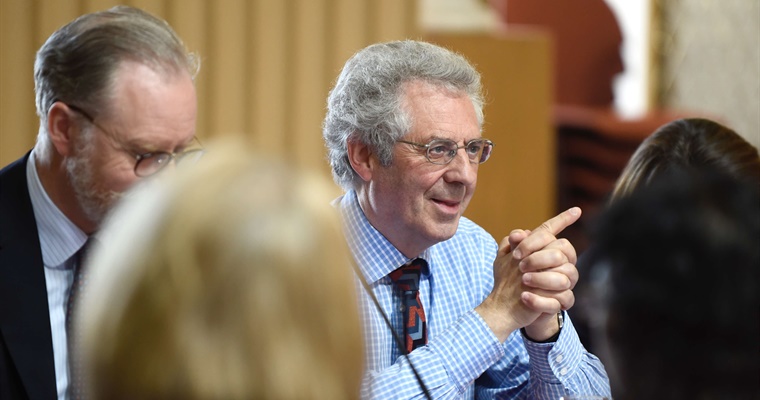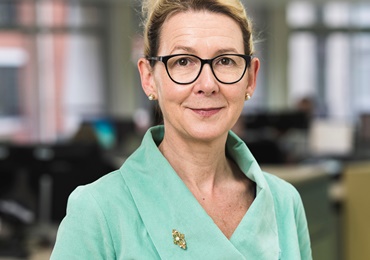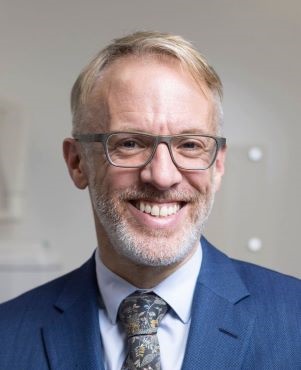Bill Moyes’ post-October Council blog

The GDC continues to deliver radical change as it works to achieve the aims we set out in Shifting the balance. These changes are about making dental regulation better for patients and fairer for dental professionals but are seeking to achieve this whilst also making the GDC more cost-efficient. Of course, bringing in new ways of working often means set-up or changeover costs which need to be met at the outset, and in those cases, we must ensure that the business case delivers value for money.
The Council is proud of what has been achieved so far but it continues to scrutinise and constructively challenge the work of the executive to ensure initiatives are on track and delivering what they set out to achieve.
One example of this is the operational hub we are setting up in Birmingham, with over 200 roles moving there in two strands, substantively completing the relocation by late 2019. The outcome will be that all operational functions will be based in Birmingham and the GDC’s only London office will be our headquarters at 37 Wimpole Street, where there will be a significantly reduced number of staff and where we will hold our hearings.
Last week was a particularly important one for this significant project: the new office in Birmingham at 1 Colmore Square opened and we now have GDC staff working there. It has taken a huge amount of work to get to this significant milestone. I would like to both thank those involved and extend the Council’s welcome to our new recruits.
The benefits to this move are many but, in relation to our costs, the programme will deliver significant savings over the long term. Of course, securing new premises, recruiting and ensuring continuity of our statutory function in the interim inevitably requires investment over the next two years. Nevertheless, we forecast that we will begin to realise net savings for this project in the early 2020s.
The early impacts of this major programme are to be seen in the GDC’s 2019 budget, which the Council approved at last week’s meeting. That budget is designed to cope with the external uncertainties we face next year, alongside the elements of risk and uncertainty which attach to extensive changes the GDC is undergoing. This is why the ARF has remained unchanged.
When the GDC can reduce fees sustainably and meaningfully then a reduction will be recommended to the Council. This will only happen when we are confident that we are delivering the objectives set for us by Parliament cost-effectively, with an appropriate degree of financial resilience. The changes we are making now (and the associated provisions in the budget) are essential steps to get us to that position.
Another significant project that will help the GDC to be more efficient, as well as delivering a better fairer system of dental regulation, is the Fitness to Practise end-to-end review. The end-to-end review is not a rigid plan of action – it needs to react to significant events and new developments in regulation. This is why the Council considered an analysis of the Professional Standards Authority’s (PSA) review of the Nursing and Midwifery Council’s (NMC) handling of complaints about midwives at the University Hospitals of Morecambe Bay NHS Foundation Trust. We were keen to know what the implications of that report were for our current and changing FtP processes. The Council was assured that the GDC has already addressed some of the lessons in its FtP processes, such as access to clinical advice. Other lessons, such as use of adversarial language, are being addressed as part of the end-to-end review. The Council welcomed this additional learning being fed into how the GDC improves its enforcement processes.
The Council also discussed your response to the recent consultation on the GDC’s fees policy. Thank you to those that took the time to share your views with us. We received a significant amount of feedback and the Council has allocated a considerable amount of time, over more than one meeting, to consider this and to develop our response. That is as it should be: the proposed new fees policy is a very significant change and the views expressed to us have merited careful consideration. The GDC is committed to being clearer about the use of income generated by the fees we collect, the fee structure, ensuring the costs of regulatory activity are borne by those most closely associated it, while being as fair and practical as possible and cross subsidy when it arises – and reducing it where we can. We will be publishing our response to the consultation in the autumn.
Finally, the Council discussed the evaluation of the two-day programme of engagement that took place in Edinburgh in June. The feedback has been overwhelmingly positive, with helpful learning points for future events. The Council is committed to engaging more and better with patients, dental professionals and stakeholders across the whole of the UK, and planning is already underway for a similar event in Wales and a visit in Northern Ireland. I and the Council are already looking forward to these engagements.
 eGDC
eGDC

















